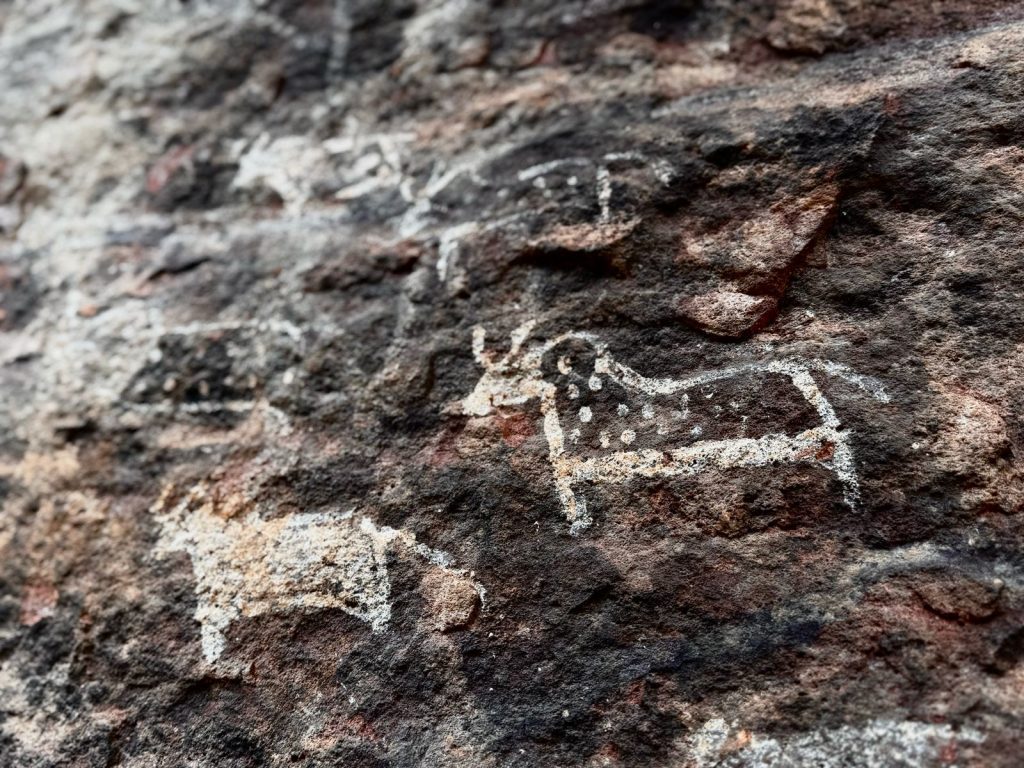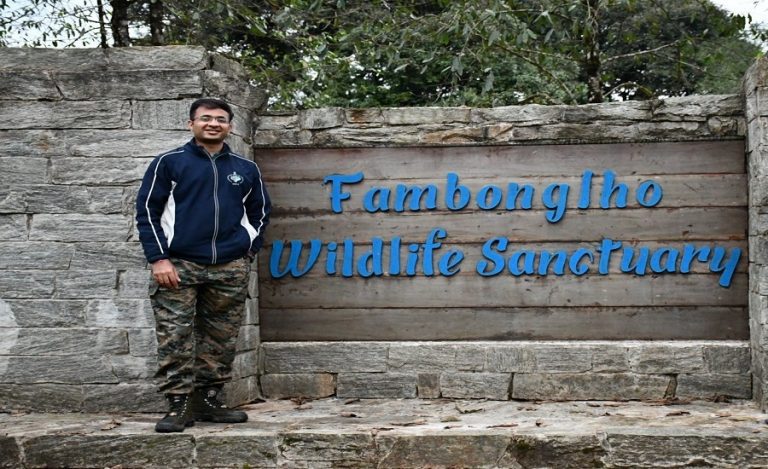Korea district in Chhattisgarh, rich in forests and water bodies, holds immense potential to become a prime eco-tourism destination. With 60% of its area covered by forests and numerous large water bodies, the region is poised for growth in sustainable tourism. Historically, Korea was also a princely state and is home to vast Sal and mixed forests, further enhancing its appeal for nature-based tourism.
Recognizing this potential, the district administration is working to establish Korea as a key eco-tourism destination while creating livelihood opportunities for the local population. Beyond tourism, efforts are focused on promoting the region’s rich culinary heritage. From millet cafes to tree houses, the administration has already made significant strides toward realizing this vision.
Indian Masterminds recently spoke with 2003 batch IAS officer Chandan Sanjay Tripathi, the collector of Korea district, to learn more about the district’s potential and how the administration is working to transform Korea into an ideal destination for eco-conscious travelers.
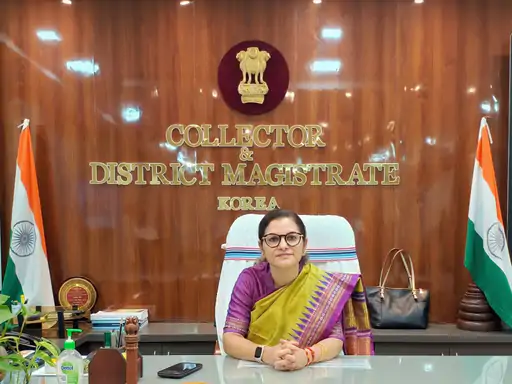
JHUMKA LAKE
Among the many captivating spots in Korea, Jhumka Lake stands out. Known for its vast waters and scenic views, it is one of the major attractions drawing tourists from all around. The district administration is dedicated to conserving this water body while promoting sustainable tourism.
Strict rules and regulations have been enforced to ensure that the lake remains unspoiled. The lake is a key eco-tourism spot, offering boat rides and shikara services to visitors. Additionally, a large garden and an aquarium have been developed nearby, enhancing the experience for tourists. A unique feature of the lake is the presence of migratory birds, especially from November to January, with various species of ducks arriving during this season.
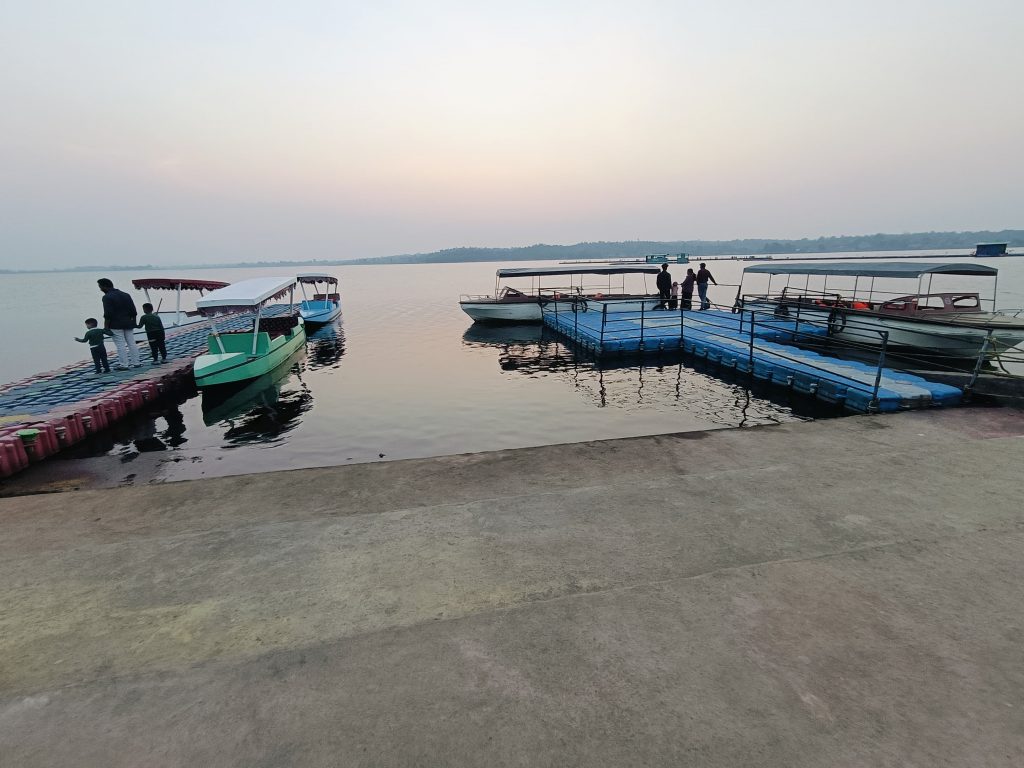
TREE HOUSE: UNIQUE EXPERIENCE
For those seeking a more unique experience, Ghunghutta water body in Sonhat offers an extraordinary stay. As part of an initiative, the administration is developing tree houses in the area. These tree houses, made entirely of wood and nestled high among the trees, provide visitors with a one-of-a-kind connection to nature. The experience promises stunning views and a chance to truly immerse oneself in the natural surroundings. Whether it’s the gentle hum of the forest or the serene atmosphere, a stay here is sure to leave a lasting impression.
She said, “We are doing our best to develop the district from every angle. Our vision is to transform it into a thriving tourist hub and make it better for everyone.”
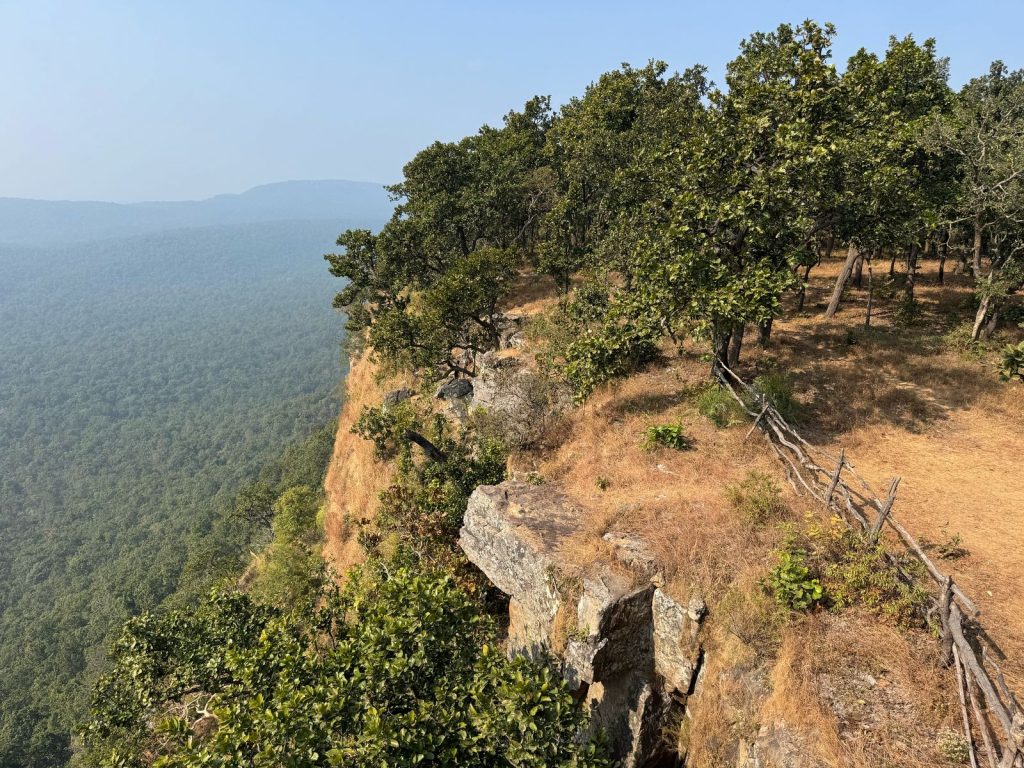
KOREA MILLET CAFÉ: TASTE OF TRADITION
In addition to eco-tourism initiatives, The Korea Millet Café, a pioneering project by the district administration, has emerged as a major success. Run entirely by women, the café serves dishes prepared with local millet-based ingredients such as ragi (finger millet), kodav (barnyard millet), and kutki (little millet). These nutritious ingredients are used to create a variety of delicious and healthy meals. The café’s success is evident from its turnover, which reached 1 crore 26 lakhs until last month. Its impact has been so significant that the Prime Minister personally invited the women running the café to meet him.
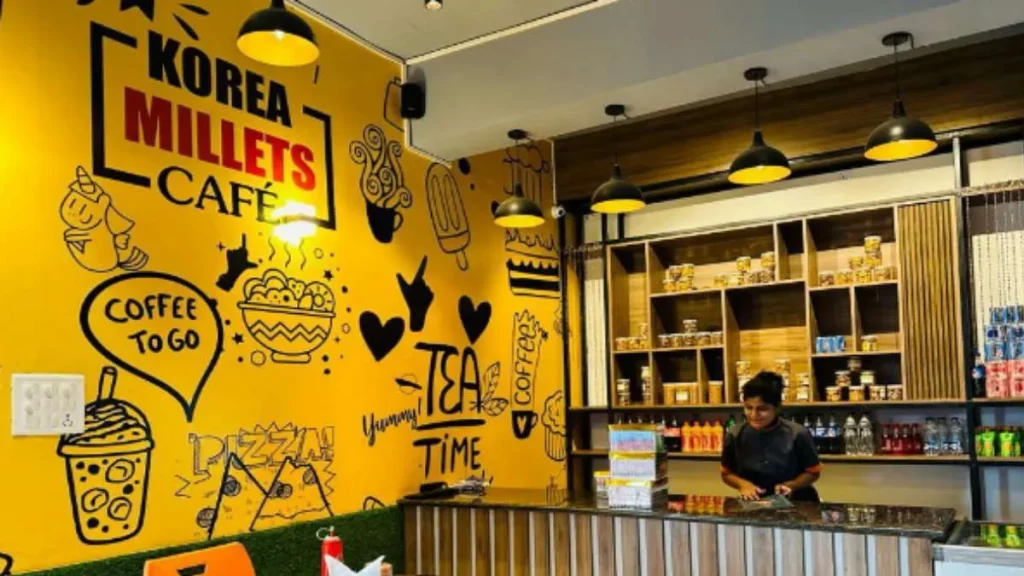
The café provides employment to around 80 local women and its products are being sold through Farmer Producer Organizations (FPOs). As part of the administration’s initiative, the women have also developed a highly nutritious treat: the Korea Modak Laddu, made from ragi and groundnut. This healthful snack will soon be available for sale online and is currently being distributed to pregnant women in the community.
Launched in 2024, the café’s success has inspired the administration to expand the model. A new café is currently under construction in Sonhat, where it will cater to guests staying in local homestays. “Our goal is to combine tourism with sustainable livelihoods and the promotion of local food,” she added.
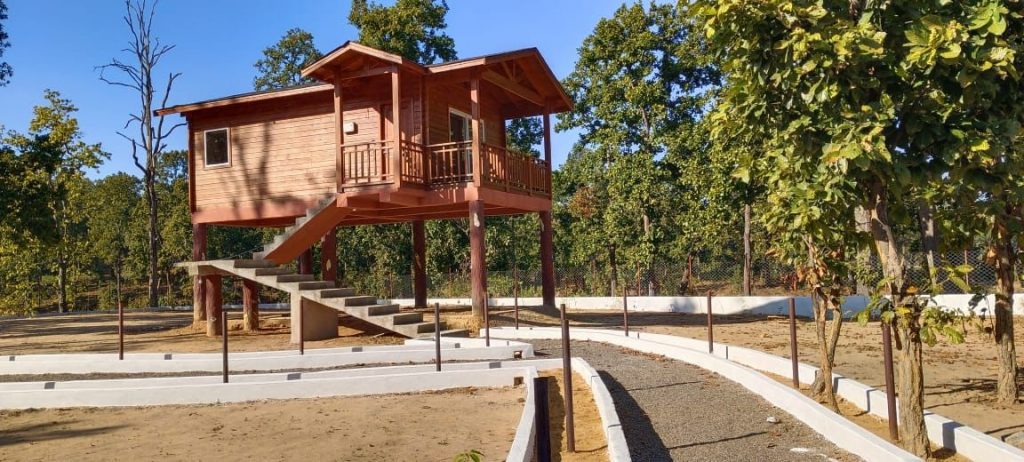
C – MART
Another notable initiative is C-Mart, a supermarket-style outlet designed to boost the rural economy and promote indigenous products. Located in the district headquarters, C-Mart offers a diverse range of local goods, including the region’s famous organic rice, cumin-flower rice, and local honey. In addition, it features products such as Mahua cookies, Mahua squash, bael syrup, Ayurvedic herbs, herbal soaps, badi, papad, spices, Murrah, dona-pattal, and cashews—all crafted by local women’s groups.
To support honey production, farmers in Sonhat have received specialized training in Haryana. The Collector personally visited the village where these farmers are based, and this season, they produced approximately 50 kg of honey.
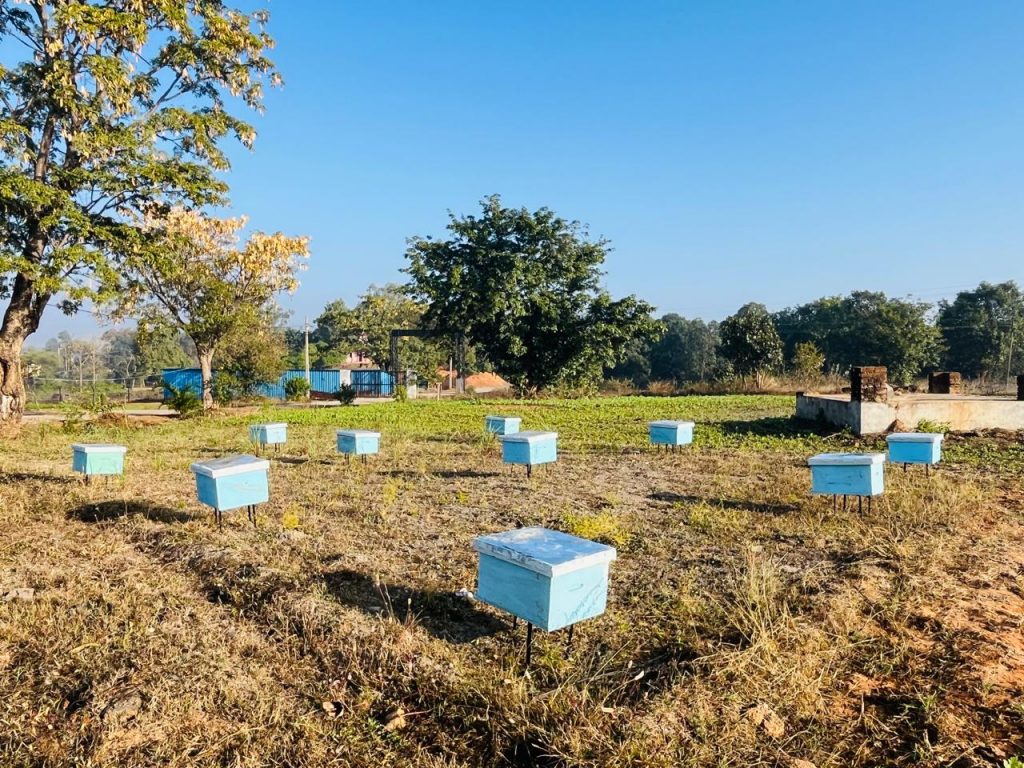
“Flowers are crucial for honey production, and Sonhat’s landscape is perfect for this. Mustard flowers are abundant here, followed by Palash and Sal flowers, making this region an ideal choice for honey production,” explained Ms Tripathi.
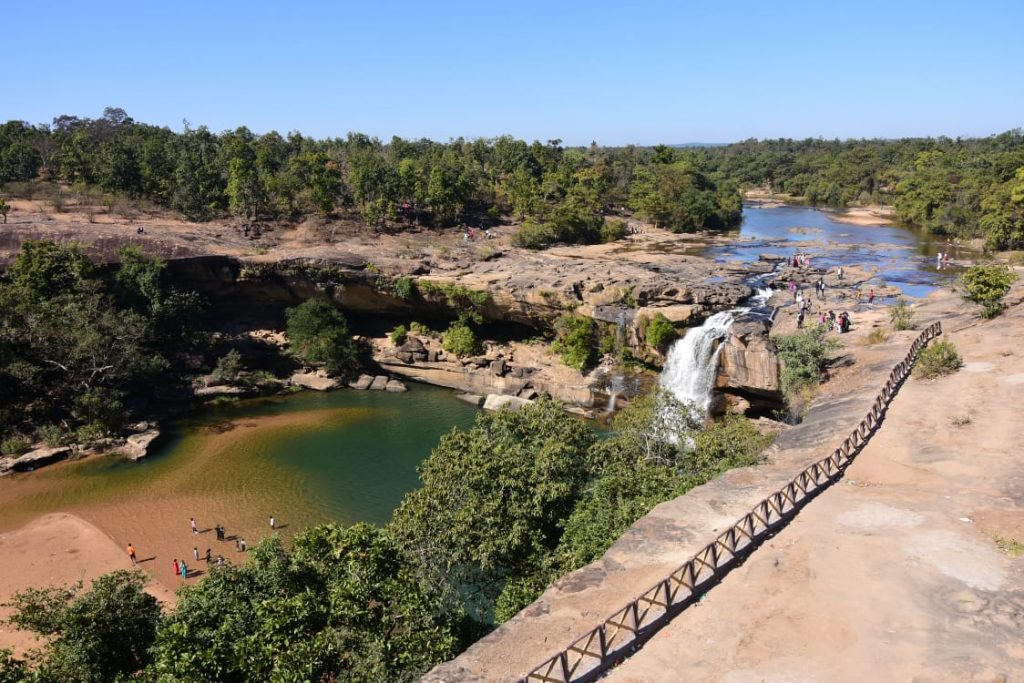
INTEGRATED FARMING
Korea district’s commitment to sustainable practices is evident in its agricultural initiatives. The region’s favorable climate, with its consistently cool temperatures, is ideal for growing crops like chikoo and litchi.
To boost agricultural output and attract agro-tourism, the administration is actively promoting the cultivation of these crops. Recently, a 10-hectare litchi plantation was established as part of this initiative, further enhancing the district’s agricultural appeal.
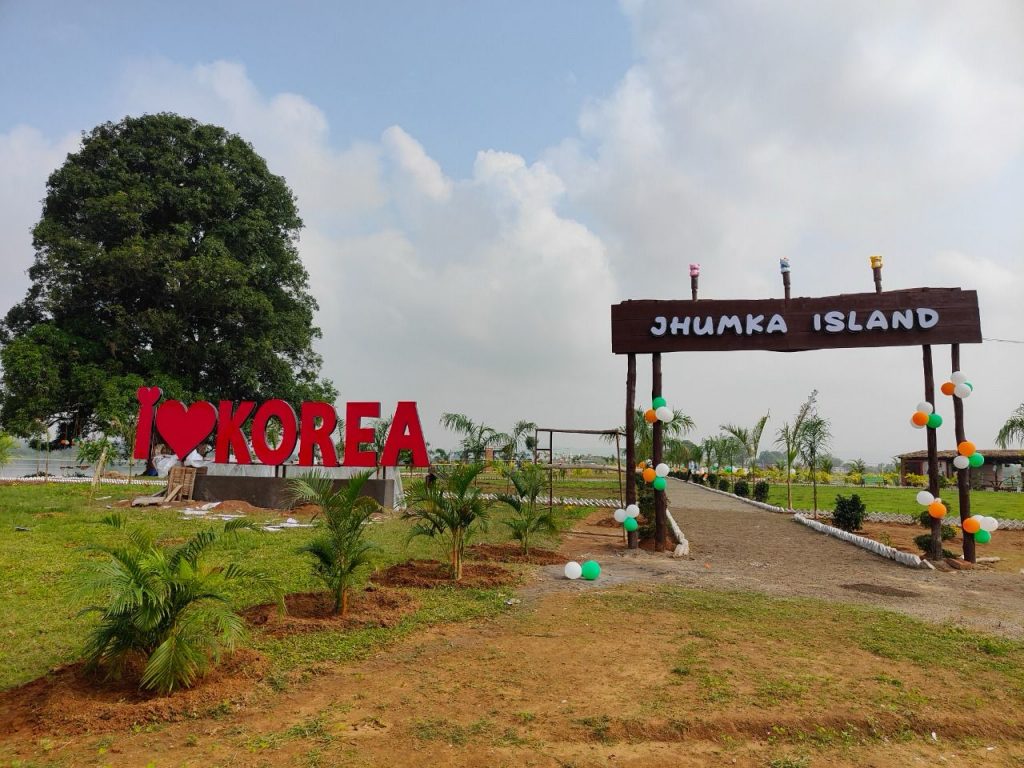
A HIDDEN TREASURE
The administration is also focusing on promoting homestays, particularly in Sonhat, a picturesque location and the origin of the Hasdeo River. This area is home to three stunning waterfalls – Ramdhara, Hanuman Dhara, and Chitrakote – which have been developed to attract more visitors. Numerous homestays have been set up here, with more being developed to accommodate the growing number of eco-tourists.
The administration’s focus on eco-tourism here is evident, with efforts to create a sustainable balance between nature conservation and promoting tourism. The vision for Sonhat is to transform it into a thriving tourist hub, complete with cozy accommodations and a rich natural environment.
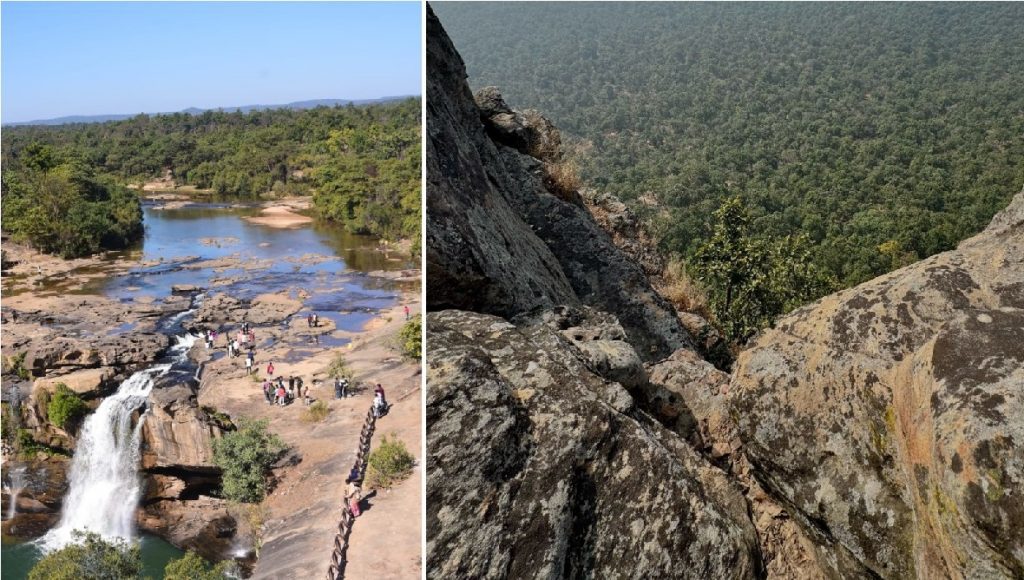
THE TROPIC OFF CANCER
In addition to its diverse natural attractions, Korea district is a geographical marvel. The Tropic of Cancer passes through the district, and the administration has demarcated the exact location for tourists to visit. Stones engraved with information about the Tropic of Cancer have been placed at the site, allowing visitors to explore this unique feature. Efforts are underway to further improve the area, with development expected to begin soon.
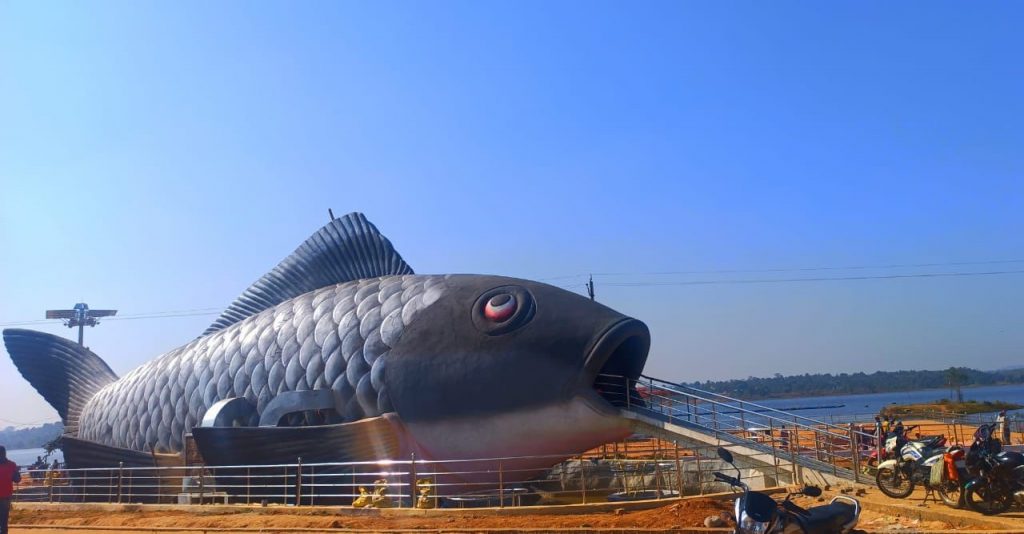
NEELKANTH
Another remarkable spot is Dasher village, located at the district’s farthest point, offering a stunning 360-degree view of the surrounding Blue Mountains. Popular with trekkers and hikers, the area features many small hills to explore. The administration plans to further develop this location after March this year to accommodate the growing number of tourists.
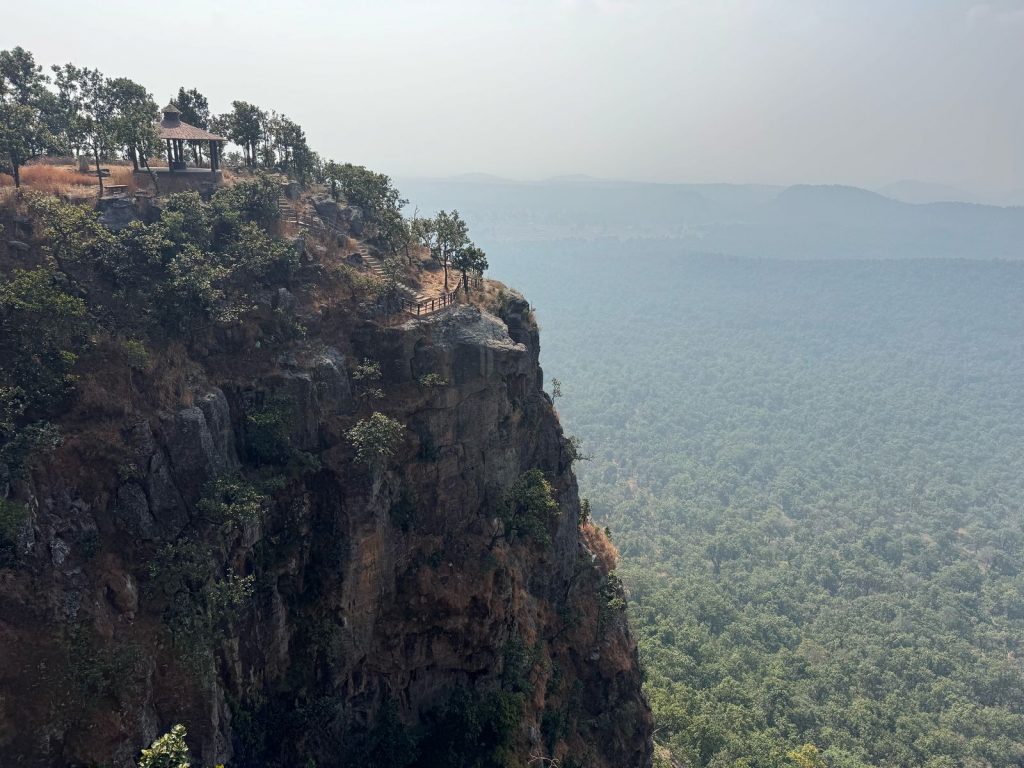
TIGER RESERVE
Korea’s natural wonders extend far beyond its forests and lakes. The Guru Ghasidas Tiger Reserve, formerly a national park, is now home to a growing population of tigers. The administration is dedicated to its continuous development, aiming to enhance both the reserve’s sustainability and its appeal to tourists.
Currently home to five tigers, the reserve is a focal point for conservation efforts, while the district remains committed to preserving its rich biodiversity. As the reserve evolves, it is poised to become a prime destination for wildlife enthusiasts.
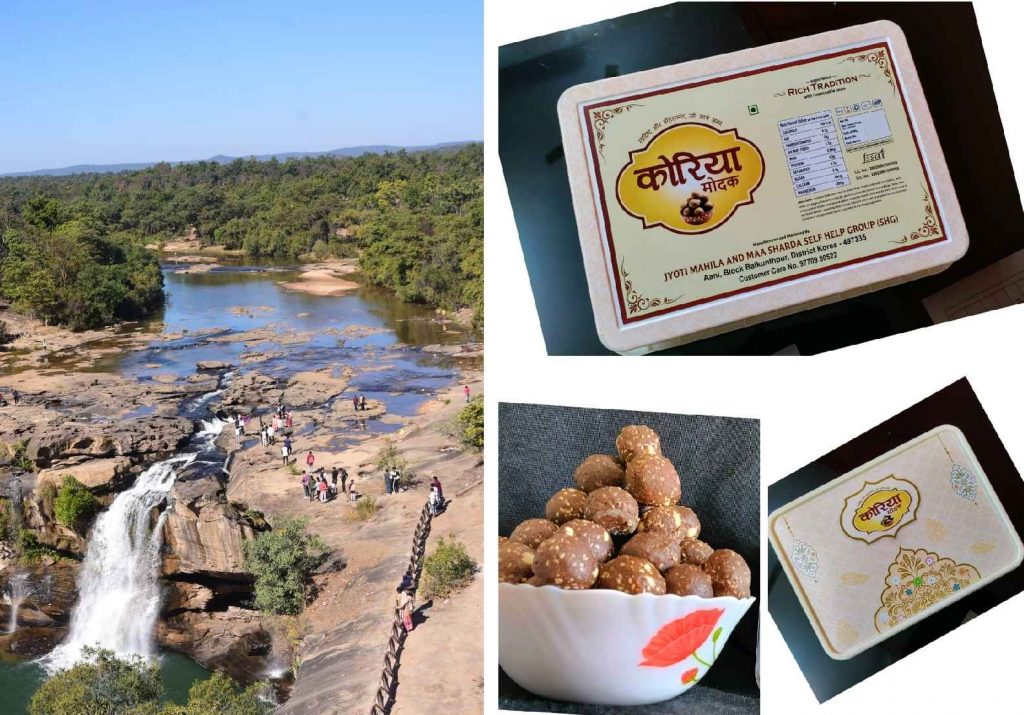
THE EFFORTS BEARS FRUIT
With dedicated efforts from the local administration and the community, Korea is on its way to becoming a thriving hub for sustainable tourism, offering unique experiences for every traveler. Whether it’s exploring its lush forests, staying in a tree house, or enjoying locally sourced food, Korea is a place where nature, culture, and innovation come together seamlessly.
